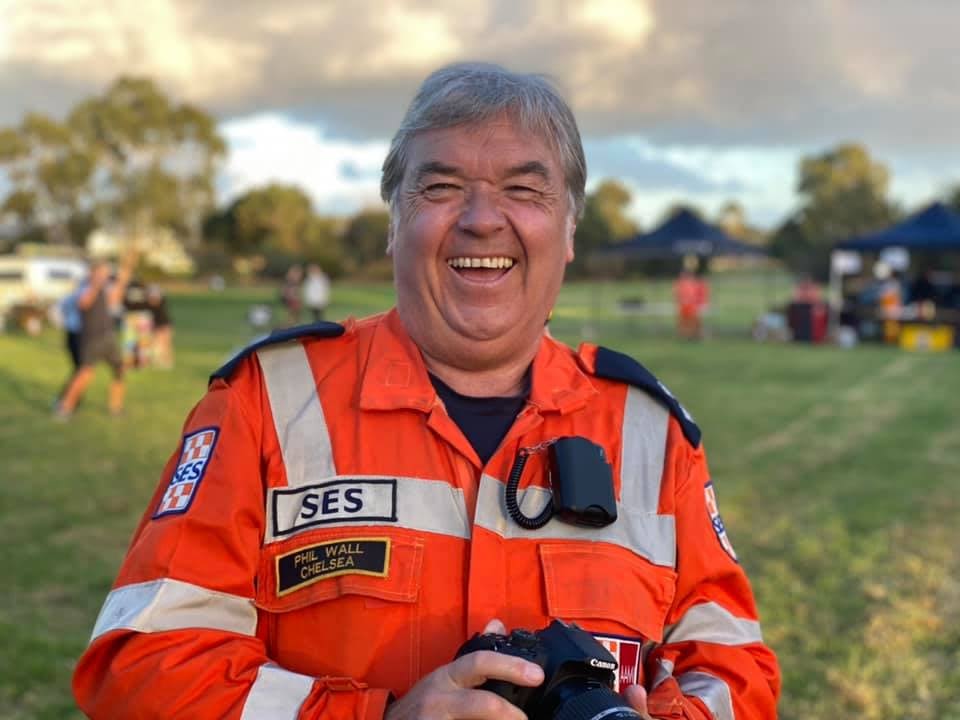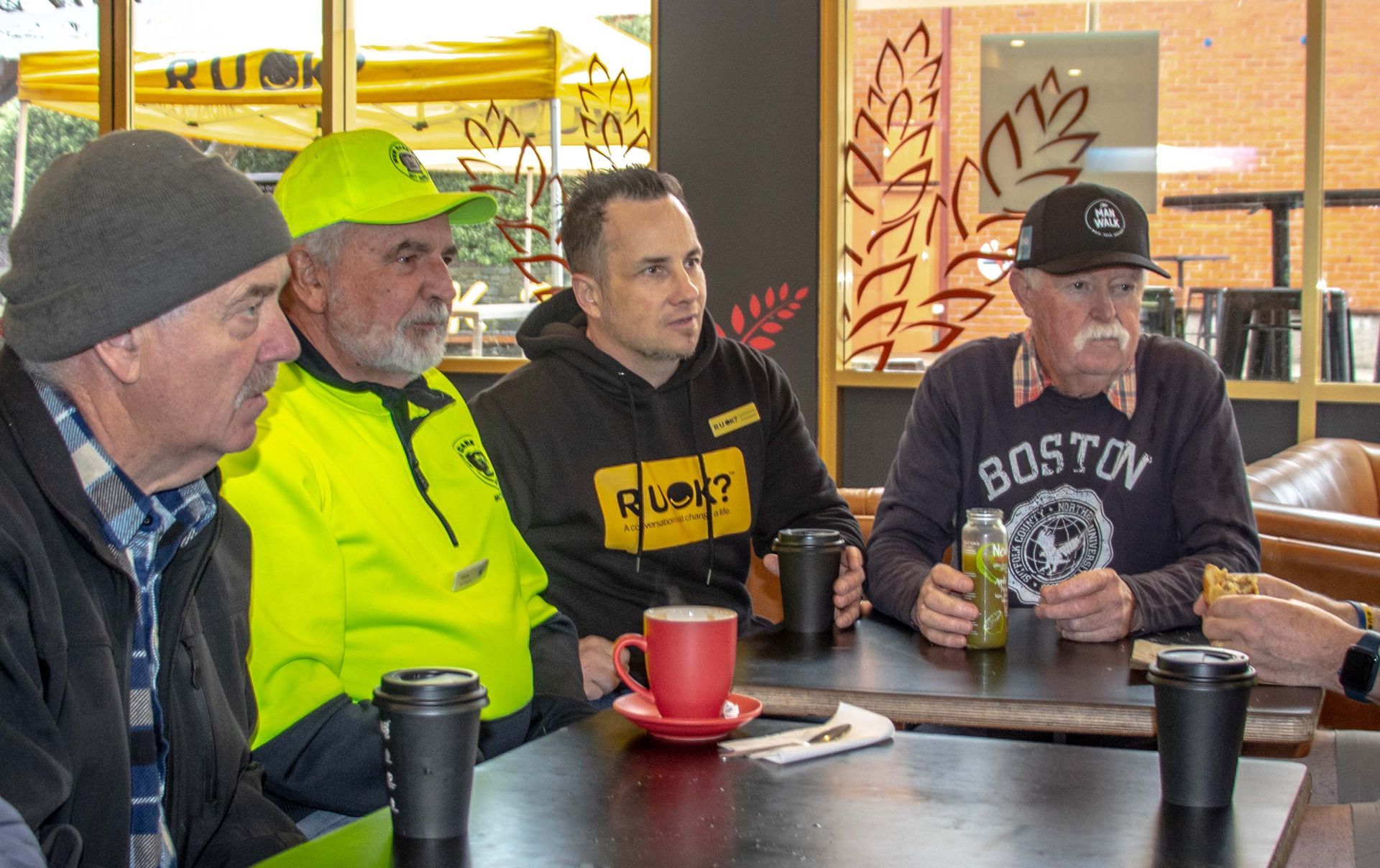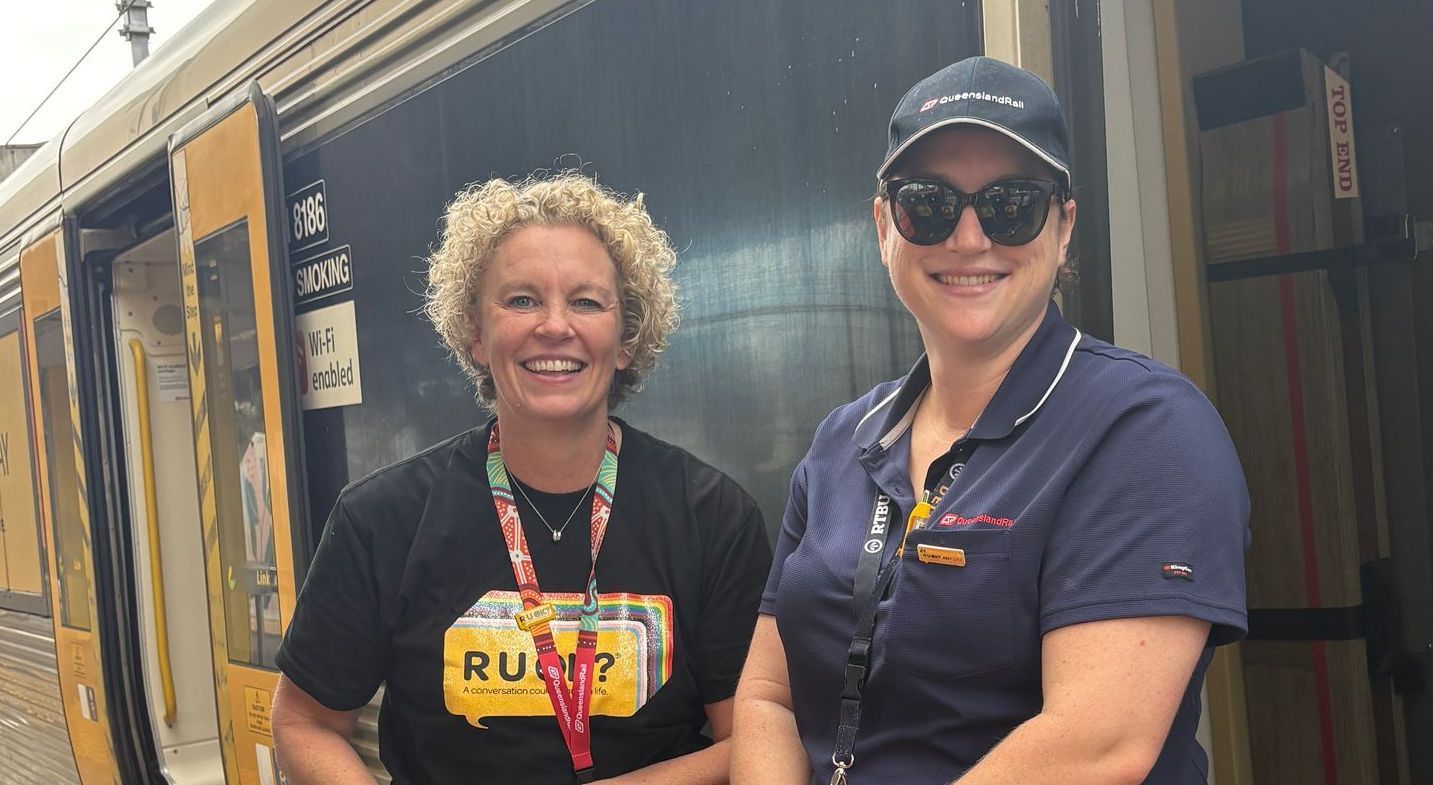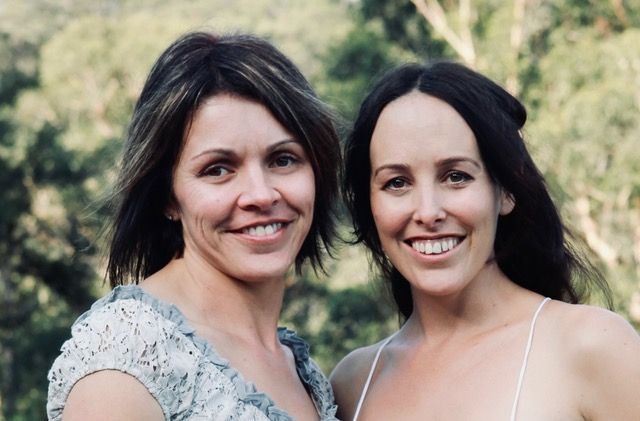First responders aren’t immune to life’s ups and downs
How to support those from our community who care for our community
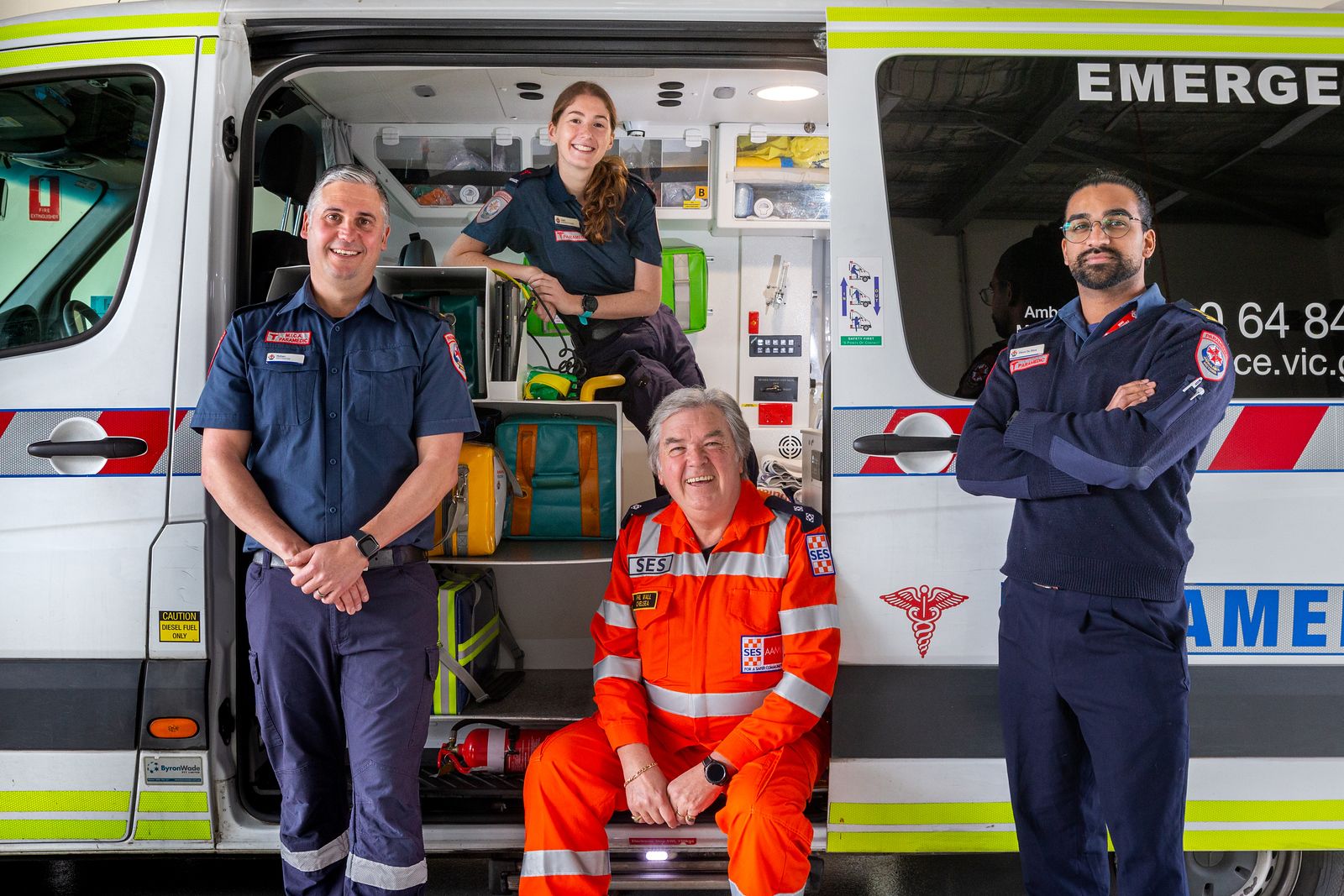
Phil is the Deputy Controller - Community Engagement at VICSES Chelsea Unit and has been a volunteer for over 20 years. After experiencing a life changing health scare, his orange family rallied around him. He shares his story in the hope to encourage everyone to look out for their peers and make R U OK? conversations a part of their everyday.
For 20 years I have worn the orange uniform and put my heart and soul into helping others on their worst day.
In 2021, on a regular Sunday morning, my worst day came.
I got out of the shower and felt a little light-headed. Looking in the mirror I noticed my mouth was slightly lower on the right side.
My training with SES made me well aware of F.A.S.T – a quick test to recognise common signs of a stroke (F-ace weakness, A-rm weakness, S-peech problems and T-ime to call 000). I attempted to lift my arms, but the right one was struggling. Not wanting to take any risks, but also attempting to remain calm, I called my wife and through slurred speech asked her to call our lovely neighbour who happened to be a nurse.
Within a flash she was there, and immediately called an ambulance. After nearly 24 hours in hospital and numerous tests, it was finally confirmed, I had had an Ischemic Stroke on the left-hand side of my brain stem.
It felt absolutely bizarre to me that normally I am the one rushing to help and be by someone’s side and now it was me that couldn’t move, and I was the one needing help.

The recovery road was rough, especially because it was during COVID-19 restrictions, so no visitors were allowed.
After a month of intense speech therapy, physio, and occupational therapy, I was able to go home!
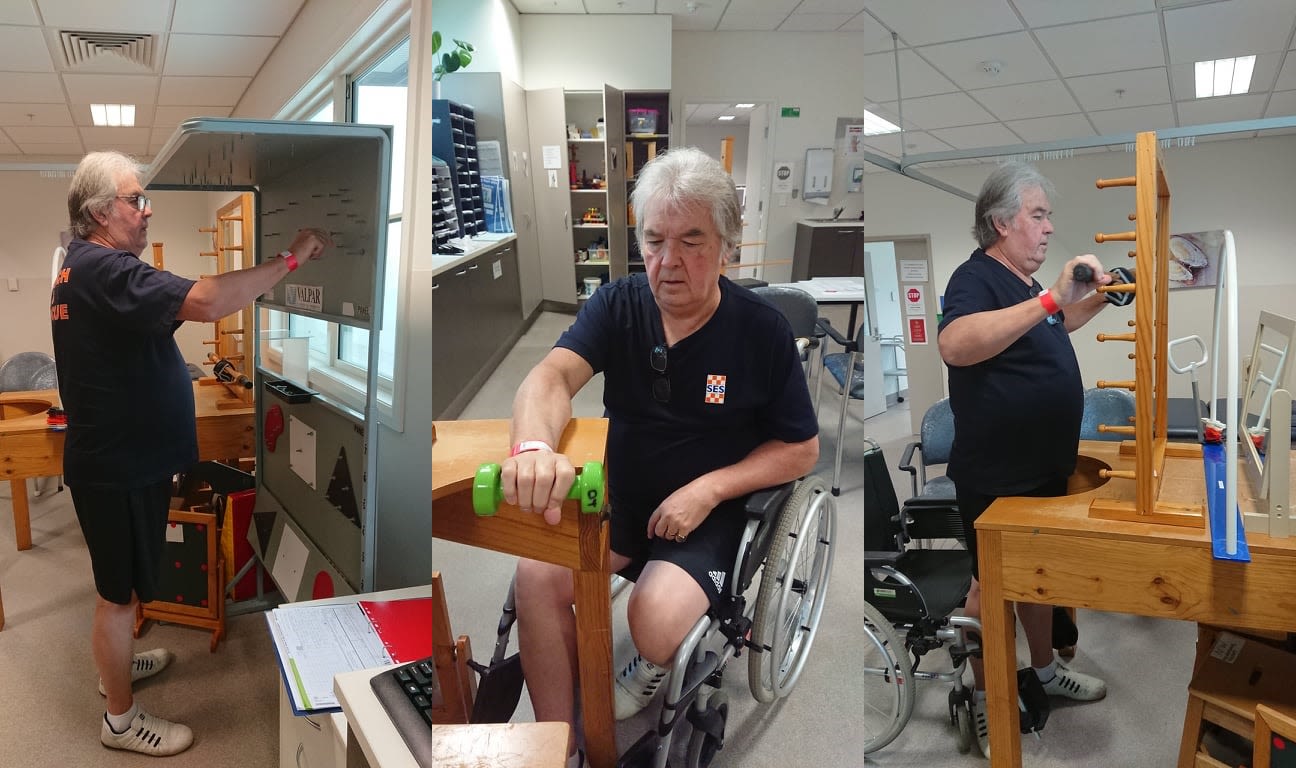
What kept me going?
The unwavering support and frequent check ins from family, friends, my orange family, and my extended orange family (the hundreds of people on our Facebook page who sent comments of support) kept me motivated. They weren’t just checking in on physical progress – but my headspace too. Being able to talk about what had happened helped me process my emotions and stay positive.
Something as significant as a stroke affects more than the person involved. It affects everyone around them. The wonderful orange family checked in on my family daily which gave me permission to concentrate on my recovery, without feeling guilty about not being home.
That’s what makes the SES so special. We are from so many different backgrounds and cultures, but as soon as we put on the orange, we are one – one family, one team, a single unit, and as such, we all care about one another.
Family can mean different things to different people, but for me it’s about care, support, and trust, and knowing that through them, someone will always have your back.
Even though I couldn't put the orange uniform on, they continued to care.

Why am I sharing this story?
Because my health scare is a stark reminder that emergency services workers aren’t immune to life’s ups and downs, and there will be times when we need support too.
Now that I’m back working, with a new lease in life, I am more determined than ever to remind people just how important those small (but mighty) conversations are.
At any time, emergency services workers and volunteers can be called on to attend some horrible scenes. We meet people that are going through incredibly stressful times and see things that most people will never see in their lifetime. These jobs can have an accumulative effect on a crew member’s mental health, and in some cases lead to burn out and major health concerns.
Having a connection with fellow members means that you can more easily pick up on subtle changes, small alarm bells and even asks for help, that you wouldn’t see if you didn’t have that connection with them. Which is why conversations matter – it’s what builds those connections!
But this doesn't just apply to SES, it applies to everyone.
Life can be tough, and we all have our ups and downs. We don’t have to wait until R U OK?Day to check in on someone. It can be done any day, and every day.
Before you ask, you must be ready and willing to listen. To really hear what they have to say without judgement.

Be supportive and never dismissive.
‘You’ll be fine mate’ doesn’t allow someone the time and space to talk. Sometimes the issues are deeper.
My top tip is to be present in the conversation because the opportunities you give someone to speak while really listening, the more chance you have of unearthing the problem and getting them the help they need.
So, here’s your reminder to check in on:
- Your colleague who is off sick
- Your emergency service friend who’s responded to back-to-back jobs
- Your neighbour who lives alone
- Your sibling who started a new job
- Your mate who just became a parent
And so on…
If conversations helped me bounce back from a stroke, imagine what it could do for others.
